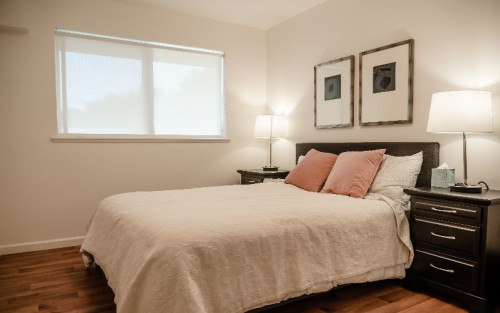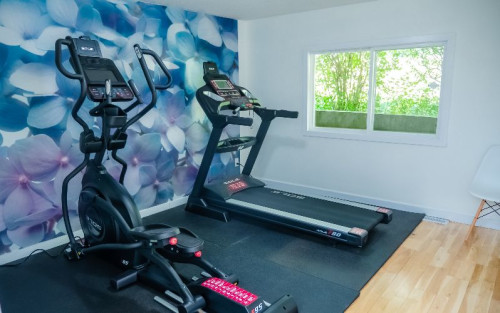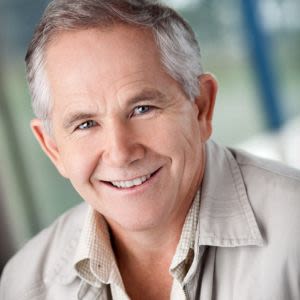








Georgia Strait Womens Clinic
Verified Center
This provider's information has been quality-checked by Recovery.com's Research Team for accuracy and completeness, including center verification through appropriate third-party organizations.
Treatment Focus
This center treats substance use disorders and mental health conditions. You'll receive individualized care catered to your unique situation and diagnosis, learn practical skills for recovery, and make new connections in a restorative environment.
Primary Level of Care
Offering intensive care with 24/7 monitoring, residential treatment is typically 30 days and can cover multiple levels of care. Length can range from 14 to 90 days typically.
Treatment Focus
This center treats substance use disorders and mental health conditions. You'll receive individualized care catered to your unique situation and diagnosis, learn practical skills for recovery, and make new connections in a restorative environment.
Primary Level of Care
Offering intensive care with 24/7 monitoring, residential treatment is typically 30 days and can cover multiple levels of care. Length can range from 14 to 90 days typically.
Provider's Policy
At Georgia Strait Womens Clinic, we are dedicated to helping you on your journey to recovery with personalized, compassionate care. We accept all major insurance providers to ensure that you have access to the treatment and support you need without added financial stress.
Georgia Strait Womens Clinic
Georgia Strait Womens Clinic
About Georgia Strait Womens Clinic
After 15 years of helping women with mental health and addiction treatment, Georgia Strait Women's Clinic knows there is a significant need for specialized services for women with mental health, addiction, and trauma issues. They seek to provide specialized addiction and mental health care with a non-12-Step, evidence-based approach. Georgia Strait approaches treatment with strength-based, solutions-focused, and trauma-informed care.
Expert, Empathetic Professionals
Georgia Strait Women's Clinic believes that every client (woman, non-binary, transgender) deserves a highly skilled, compassionate, and curious team of professionals to help them. In their unique setup, Georgia Strait offers the services of a large facility with the privacy and attention found in a smaller one. Their therapists are all masters-level. They additionally have a 24/7 nursing team, a psychiatrist and addictionologist, and a medical doctor who assesses each woman before they begin treatment. Many on Georgia Strait’s team have walked through addiction themselves, placing them in a unique position of unmatched empathy and expert clinical knowledge.
Specialized Programming for Each Woman
Georgia Strait caters to women who have experienced trauma and who have mild to moderate disordered eating. In their unique atmosphere of support and safety, women can work through past traumas and gain the tools they need to flourish. Cell phone and laptop use allow women to stay connected with employers, employees, and family. On-staff nursing and clinical detoxification help keep women safe and comfortable at all stages of their treatment. Georgia Strait’s therapies include cognitive behavioral therapy (CBT), dialectical behavioral therapy (DBT), Hakomi therapy, eye movement desensitization and reprocessing (EMDR) therapy, art therapy, and hypnotherapy. Women join group therapies, 1:1 therapy, and can choose between various psychoeducational workshops when not in therapy.
Private, Restorative Accommodations
Women have their own private, apartment-style suite to call home during treatment. Inside their rooms, women have a small kitchen, seating area, private bathroom, bedroom, and wireless internet. In Georgia Strait’s facility, women can enjoy their gym, yoga studio, group dining room and TV room, laundry facilities, and the quiet nature surrounding their centre. They can bring their pet, too.
Georgia Strait Womens Clinic accepts private insurances. They do not accept provincial or territorial insurances.

Highlights from the Center
Highlights
These highlights are provided by and paid for by the center.
Therapeutic Location
Boutique
Non 12-Step Approach
Women Only
Center Overview
Treatment Focus
This center treats substance use disorders and mental health conditions. You'll receive individualized care catered to your unique situation and diagnosis, learn practical skills for recovery, and make new connections in a restorative environment.

Georgia Strait Womens Clinic
Insurance Accepted
Cash Pay Rates
Estimated Cash Pay Rate
Center pricing can vary based on program and length of stay. Contact the center for more information. Recovery.com strives for price transparency so you can make an informed decision.




Recovery.com Verified Listing
Recovery.com verified that the name, location, contact information and license to operate for this treatment provider are valid and up-to-date.

Accredited with Exemplary Standing

Vancouver Coastal Health
Recovery.com is an independent, third-party mental health resource. Verification does not imply endorsement and does not guarantee the quality of treatment services.
Meet Your Care Team

Carissa Muth, Psy.D
Clinical Director
Registered Psychologist

Sara Klinkhamer
Family Services Counsellor
MA, RCC

Jennifer Murray
Nursing Director
RPN

Danielle Foster
Case Manager
RPN

Jacques du Toit
Medical Director
MB, CHB, ISAM

Stuart Howard
Psychiatrist
MD, FRCP (C)
Your Care Options
Specializations
Alcohol
Using alcohol as a coping mechanism, or drinking excessively throughout the week, signals an alcohol use disorder.
Co-Occurring Disorders
A person with multiple mental health diagnoses, such as addiction and depression, has co-occurring disorders also called dual diagnosis.
Drug Addiction
Drug addiction is the excessive and repetitive use of substances, despite harmful consequences to a person's life, health, and relationships.
Executives
Executive treatment programs typically directly support the needs of people who manage businesses and may provide flexible schedules and office space to allow work during treatment.
Licensed Primary Mental Health
Some primary care providers offer mental health diagnosis and treatment. This can prevent patients from developing more serious conditions.
Trauma
Some traumatic events are so disturbing that they cause long-term mental health problems. Those ongoing issues can also be referred to as "trauma."
Gender-Specific
Separate treatment for men or women can create strong peer connections and remove barriers related to trauma, shame, and gender-specific nuances.
Who We Treat
Older Adults
Addiction and mental health treatment caters to adults 55+ and the age-specific challenges that can come with recovery, wellness, and overall happiness.
Executives
Executive treatment programs typically directly support the needs of people who manage businesses and may provide flexible schedules and office space to allow work during treatment.
Young Adults
Emerging adults ages 18-25 receive treatment catered to the unique challenges of early adulthood, like college, risky behaviors, and vocational struggles.
LGBTQ+
Addiction and mental illnesses in the LGBTQ+ community must be treated with an affirming, safe, and relevant approach, which many centers provide.
Midlife Adults
For adults ages 40+, treatment shifts to focus on the unique challenges, blocks, and risk factors of their age group, and unites peers in a similar community.
Mild Disabilities
Adults with mild physical or intellectual disabilities receive treatment catered to their specific needs in a safe and clinically supportive environment.
Pregnant Women
Addiction and mental health treatment meets the clinical and psychological needs of pregnant women, ensuring they receive optimal care in all areas.
Treatment Services
Detox
Detox fully and safely removes toxic substances from the body, allowing the next steps in treatment to begin with a clean slate.
Intensive Outpatient Program
In an IOP, patients live at home or a sober living, but attend treatment typically 9-15 hours a week. Most programs include talk therapy, support groups, and other methods.
Licensed Primary Mental Health
Some primary care providers offer mental health diagnosis and treatment. This can prevent patients from developing more serious conditions.
Outpatient
During outpatient rehab, patients attend a structured treatment program while continuing to live at home.
Residential
In a residential rehab program, patients live onsite, with access to daily treatment and 24-hour care. An average stay is 30-90 days.
Approaches
Evidence-Based
A combination of scientifically rooted therapies and treatments make up evidence-based care, defined by their measured and proven results.
Individual Treatment
Individual care meets the needs of each patient, using personalized treatment to provide them the most relevant care and greatest chance of success.
Gender-Specific
Separate treatment for men or women can create strong peer connections and remove barriers related to trauma, shame, and gender-specific nuances.
Therapies
1-on-1 Counseling
Patient and therapist meet 1-on-1 to work through difficult emotions and behavioral challenges in a personal, private setting.
Meditation & Mindfulness
A practiced state of mind that brings patients to the present. It allows them to become fully aware of themselves, their feelings, and the present moment.
Transcranial Magnetic Stimulation
Localized magnetic pulses stimulate areas of the brain to increase brain activity and reduce abnormal functions.
Mindfulness Therapy
This ancient practice can be mental, emotional, and even spiritual. In meditation, you focus your attention on the present moment without judgement.
Art Therapy
Visual art invites patients to examine the emotions within their work, focusing on the process of creativity and its gentle therapeutic power.
Body Image Therapy
Therapists use cognitive behavior techniques to challenge how patients perceive their body and their worth, rewriting negative thoughts and attitudes.
Expressive Arts
Creative processes like art, writing, or dance use inner creative desires to help boost confidence, emotional growth, and initiate change.
Conditions We Treat
Pornography Addiction
A person with a porn addiction is emotionally dependent on pornography to the point that it interferes with their daily life and relationships.
Schizophrenia
Schizophrenia is a serious mental health condition that causes hallucinations, delusions, and disordered thinking.
Grief and Loss
Grief is a natural reaction to loss, but severe grief can interfere with your ability to function. You can get treatment for this condition.
Personality Disorders
Personality disorders destabilize the way a person thinks, feels, and behaves. If untreated, they can undermine relationships and lead to severe distress.
ADHD, ADD
ADHD is a common mental health condition caused by dopamine imbalance. Common symptoms include inattention, hyperactivitiy, and impulsivity.
Anger
Although anger itself isn't a disorder, it can get out of hand. If this feeling interferes with your relationships and daily functioning, treatment can help.
Anxiety
Anxiety is a common mental health condition that can include excessive worry, panic attacks, physical tension, and increased blood pressure.
Bipolar
This mental health condition is characterized by extreme mood swings between depression, mania, and remission.
Substances We Treat
Alcohol
Using alcohol as a coping mechanism, or drinking excessively throughout the week, signals an alcohol use disorder.
Benzodiazepines
Benzodiazepines are prescribed to treat anxiety and sleep issues. They are highly habit forming, and their abuse can cause mood changes and poor judgement.
Chronic Relapse
Consistent relapse occurs repeatedly, after partial recovery from addiction. This condition requires long-term treatment.
Co-Occurring Disorders
A person with multiple mental health diagnoses, such as addiction and depression, has co-occurring disorders also called dual diagnosis.
Cocaine
Cocaine is a stimulant with euphoric effects. Agitation, muscle ticks, psychosis, and heart issues are common symptoms of cocaine abuse.
Drug Addiction
Drug addiction is the excessive and repetitive use of substances, despite harmful consequences to a person's life, health, and relationships.
Ecstasy
Ecstasy is a stimulant that causes intense euphoria and heightened awareness. Abuse of this drug can trigger depression, insomnia, and memory problems.
Heroin
Heroin is a highly addictive and illegal opioid. It can cause insomnia, collapsed veins, heart issues, and additional mental health issues.
Languages
Aftercare
Care Designed for Your Needs
Personal Amenities
Amenities
Special Considerations
Clients can bring their own pet(s)
For greater comfort and healing, pet-friendly treatment centers welcome dogs and animal companions to stay with their owners while they attend treatment.
Pet Friendly
For greater comfort and healing, pet-friendly treatment centers welcome dogs and animal companions to stay with their owners while they attend treatment.
Executive Program
Addiction and mental health treatment for executives typically involves high discretion, greater technology access, and more private, 1-on-1 care.
Flexible technology policies
Centers with flexible technology policies allow professionals to stay in touch with work and give patients a greater sense of connection and normalcy.
Gender-specific groups
Patients in gender-specific groups gain the opportunity to discuss challenges unique to their gender in a comfortable, safe setting conducive to healing.
Healthy Meals are provided
Great food meets great treatment, with providers serving healthy meals to restore nutrition, wellbeing, and health.
Activities
Yoga
Yoga is both a physical and spiritual practice. It includes a flow of movement, breathing techniques, and meditation.
Off-Site Activities
Off-Site Amenities
Learn More About the Center
Why Georgia Strait?
Read more on what makes Georgia Strait Women’s Clinic unique, including their non-12-Step treatment approach.
Program Overview
Learn what to expect during Georgia Strait’s drug and alcohol addiction program.
Occupational Trauma (PTSD) Program
Learn more about the specialty program that Georgia Strait Women’s Clinic offers.
Benefits of Inpatient Care
Explore the benefits of inpatient addiction and mental health treatment, including safe detox and a supportive environment.
What people are saying
Treatment
4.7
Accommodations
4.8
Food & Nutrition
4.4
Value
4.8
Pros
- Friendly & Competent Staff (19)
- Beautiful Location (17)
- Treated With Respect (17)
- Excellent & Effective Treatment Programming (16)
Cons
- Not Enough Time With Therapist (3)
- Disjointed Care (2)
- Generalized Program (2)
Anonymous
Treatment in 2024 • (30 days) • Reviewed 12/23/24
Former Client
SB
Treatment in 2025 • (30 days) • Reviewed 05/28/25
Former Client
•Health care
•Okanagan
Lauren D
Treatment in 2024 • (38 days) • Reviewed 08/01/24
Former Client
•West Vancouver
Kara
Treatment in 2022 • (45 days) • Reviewed 08/02/22
Former Client
•Alberta, Canada
Andrea
Treatment in 2021 • (60 days) • Reviewed 12/28/21
Former Client
•Rn
•Ontario





